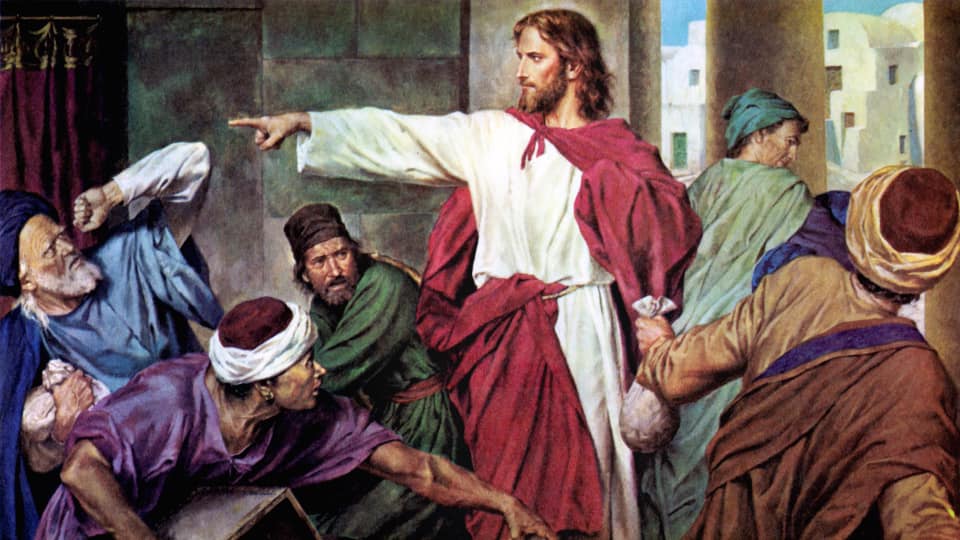169 total views
Homily for Friday of the 33rd Week in OT, 19 November 2021, Luke 19:45-48
Today’s Gospel makes me understand why Jesus was thought to be Jeremiah or one of the prophets come back to life. Remember that conversation that Jesus once had with his disciples, when he asked them the question, “Who do people say that I am?”
In Matthew 16:14, the disciples were supposed to have said to him in reply, “Some say John the Baptist, others Elijah, still others Jeremiah or one of the prophets.” Why Jeremiah? Well, what Jesus did in the temple in today’s Gospel had also been done before by the prophet Jeremiah.
It was Jeremiah who had the courage to denounce the worshippers in the Jerusalem temple for the inconsistency between their piety and religiosity, on the one hand, and their involvement in corruption and violence in the Israelite society, on the other hand. He was the one who dared to call out the blatant disconnect between all the praying and worshipping that they frequently did in the temple and all the killing, thievery and lying that they allowed and actually participated in, almost on a daily basis.
I don’t think I can say it any better that Jeremiah himself did, so just listen to what he says in his well-known “temple speech” in Jeremiah chapter 7. He says, “Look at you! You put your trust in deceptive words to your own loss. Do you think you can steal, murder, and lie…and then stand in my presence in this house which bears my name and say, ‘We are safe; we can commit all these abominations again.’? Has this house which bears my name become in your eyes a den of thieves?”
There you are. That’s the exact line that Jesus has directly quoted from Jeremiah. It is actually just part of a long and fiery speech denouncing the enablers of evil in Jerusalem, who seemed very devoutly religious. You might want to hear the rest of what he said in that chapter. He said, “If you want me to stay with you in this temple, then turn away from your evil ways… Do not put your trust in deceptive words… Only if you deal justly with your neighbor, if you stop exploiting the migrants, the orphans and the widows, if you stop shedding innocent blood… Only then will I continue to to stay with you in this place.”
And then the prophet says he himself had been sternly told by God, “Don’t you dare pray to me for these people, because I will not listen to you. Don’t you see what they are doing? I did not ask for all these burnt offerings that they are sacrificing to me in the temple. What I ask of them is that they walk in my ways and follow my commandments… But they did not listen nor pay attention; they preferred to walk in the stubbornness of their hearts and turned their backs, not their faces to me… I have kept on sending all my servants, the prophets, to them. But they have not listened or paid attention…”
The Lord therefore tells Jeremiah, “Say to them this is the nation that does not listen to the voice of the Lord their God.” The oracle ends with a threat: “I will silence the cry of joy, the cry of gladness… in the cities of Judah and the streets of Jerusalem, for the whole land will be turned into rubble.”
These words do not sound like they were said more than 2,600 years ago now. I have a feeling that the Lord is also saying them to us Filipinos now, and is giving us the opportunity to render him the kind of worship he truly appreciates.
It is in Isaiah 58 where we read a reversal of this curse by Jeremiah. When the time comes that people learn to make their religiosity consistent with their social behavior, that is the time, he says, in verses 8-10, when “Your light will break forth like the dawn and your wounds will be healed. Your vindication shall go before you and the glory of the Lord shall be your guide behind you. Then you shall call and the Lord will answer; you shall cry for help and he will say, ‘Here I am.’ …then your light shall rise in the darkness, and your gloom shall become like midday…”
















